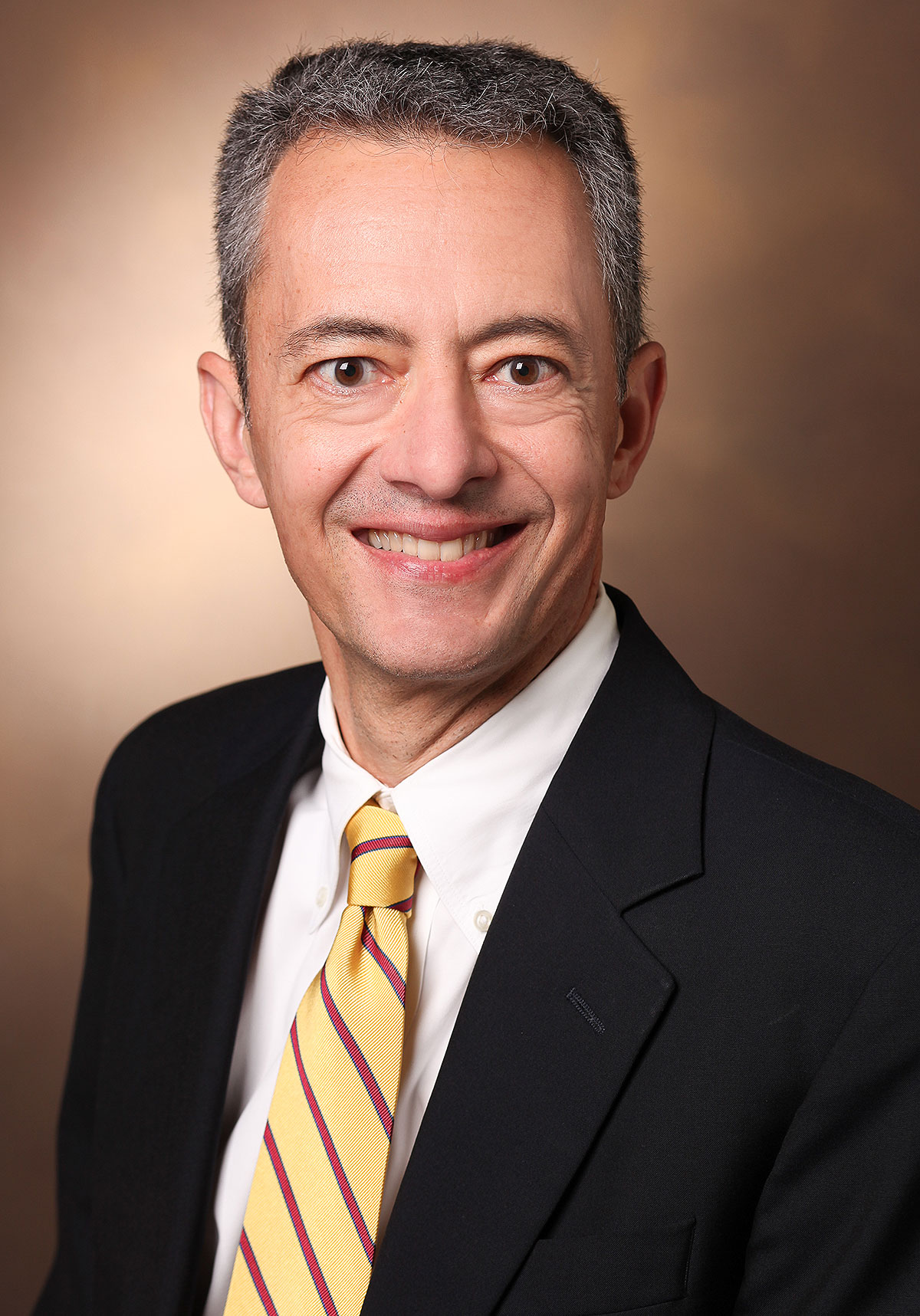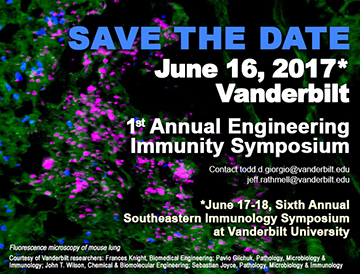Home » News » Designing the Future of Immunotherapy
Designing the Future of Immunotherapy
Posted by anderc8 on Wednesday, March 29, 2017 in News, TIPs 2016.

Dr. Todd Giorgio, Professor of Biomedical Engineering
Written by Dr. Todd Giorgio, Professor of Biomedical Engineering
From cancer to diabetes and chronic infections, our immune system plays an important role in nearly every disease. Accordingly, harnessing the power and exquisite specificity of the immune system has enormous – and still largely untapped – potential to improve human health and wellbeing. Therapeutics that “train” the immune system to find and destroy malignant cells are revolutionizing cancer therapy; the promise of cancer immunotherapy was Science Magazine’s 2013 Breakthrough of the Year. Yet, critical challenges remain. We still do not know why only a fraction of people and/or certain cancer types respond to these treatments. The toxicities involved in global immune modulation and inflammatory damage to normal tissues are significant and a key limitation to therapy. It is also unclear how to visualize the immune system to monitor treatment or predict patient outcomes. Engineering-based approaches in advanced drug delivery systems, quantitative modeling and medical imaging can be applied to solve challenges in modifying behaviors of particular immune cell types and in characterizing the responses to carefully designed immunomodulatory therapies.
Engineering Immunity (EI) was established in the summer of 2016 through support from the Vanderbilt University (VU) Trans-institutional Programs (TIPs) initiative. The mission of EI is to integrate the fields of immunology and engineering at Vanderbilt to address challenges in tumor immunology, advance discovery and empower clinically relevant interventions at the interface of technology and immunity.
The TIPs application identified the following challenge areas in which Vanderbilt has the foundation to develop visible leadership in this emerging, interdisciplinary field: Imaging and Quantifying the Immune Response/Status, Programming Immunity and Educating Immune Engineers. The goal of EI is to enhance the long-term interactions of the engineering, imaging and immunology communities at Vanderbilt.
During the first six months of operation, EI has
- Awarded three pilot grants;
- Offered support for student travel to the American Association of Immunology (AAI) conference, to be held in Washington, D.C., in May 2017;
- Invited five seminar speakers; and
- Organized a half-day symposium with an external keynote speaker to be held on campus on June 16, 2017
To build community around engineering immunity, external speakers invited by EI are scheduled to visit as part of existing seminar series organized by affiliated Vanderbilt programs including the Department of Biomedical Engineering, the Department of Pathology, Microbiology and Immunology, the Department of Chemical and Biomolecular Engineering and the Vanderbilt Center for Immunobiology. The first speaker, Jeffrey Hubbell, Professor of Molecular Engineering Innovation and Enterprise at the University of Chicago, discussed “Materials and Protein Engineering for Modulating Immunity and Tolerance” in February. Chris Jewel, Associate Professor of Biomedical Engineering at the University of Maryland, will be the next EI seminar speaker. The topic of his presentation will be “Harnessing Biomaterials to Study and Engineer Lymph Node Function” and is scheduled for April 10 at noon in Light Hall 214 as part of the Pathology, Microbiology and Immunology seminar series.

Dr. Jeff Rathmell, Cornelius Vanderbilt Professor of Immunobiology
Led by Jeff Rathmell, Cornelius Vanderbilt Professor of Immunobiology in Pathology, Microbiology and Immunology, and the Director of the Vanderbilt Center for Immunobiology (VCI) and Todd Giorgio, Professor of Biomedical Engineering, Professor of Chemical and Biomolecular Engineering and Professor of Cancer Biology, the EI team includes faculty from the Vanderbilt University Medical Center (VUMC) and the Vanderbilt School of Engineering (VUSE). This interdisciplinary effort is also working toward a coordinated educational curriculum suitable for engineering students to gain essential knowledge in immunity and immunology students to have an introduction to engineering and material science principles.
Be sure to visit this blog page regularly in the coming months for entries that detail some of the pilot projects our team is working on, reflect on key takeaways from the AAI and recap the symposium. If you would like to join the conversation, I invite you to leave comments in the space provided below.

